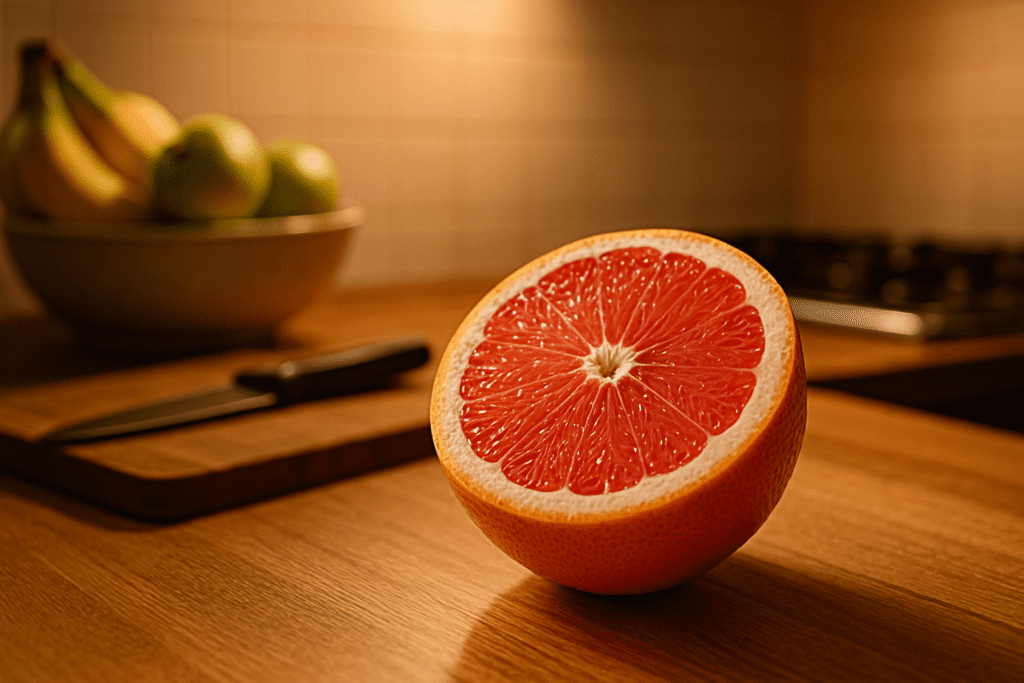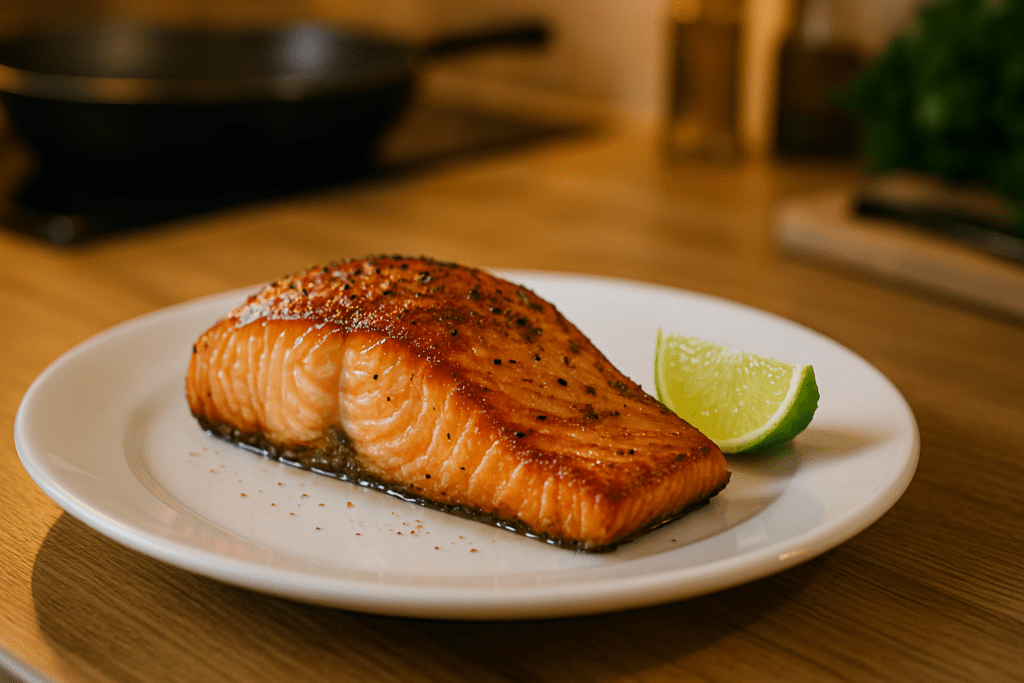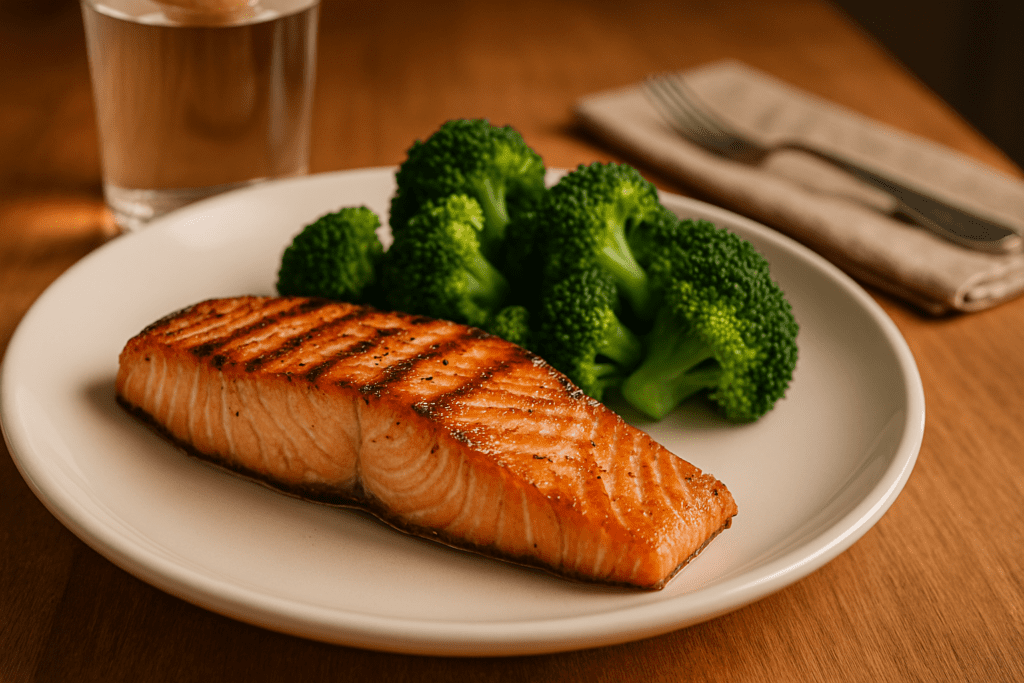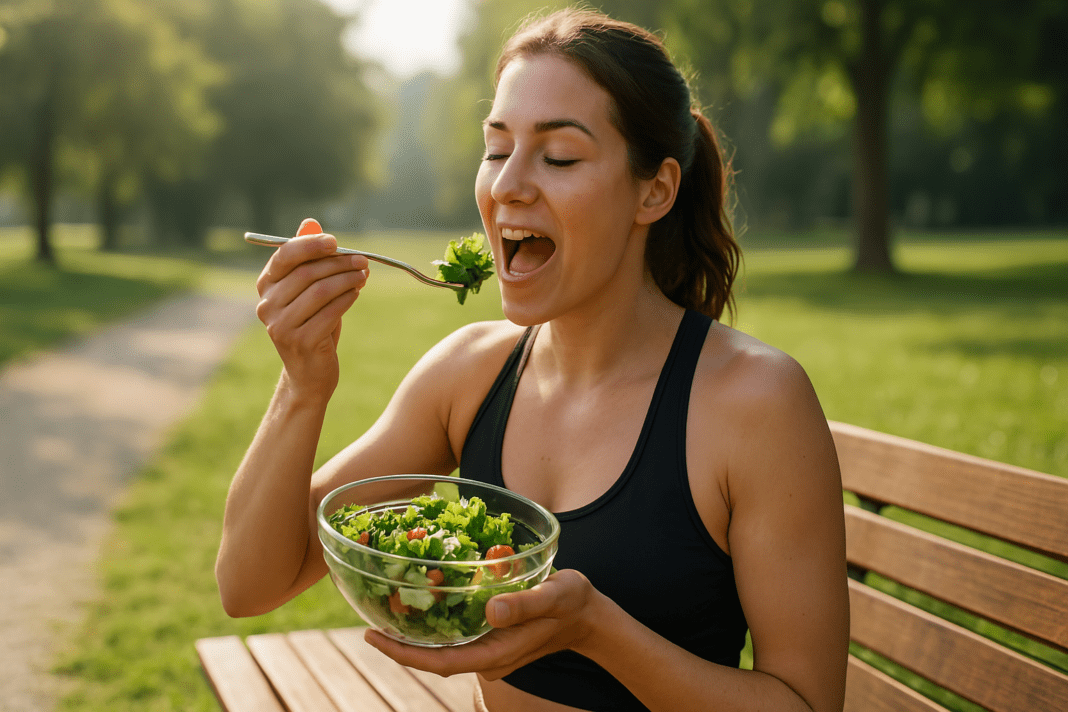Achieving and maintaining a healthy weight is a goal for many people, and understanding the relationship between diet and weight loss is crucial. While exercise is an essential component of any weight loss plan, the foods we eat play an equally significant role in determining our success. A diet rich in fat-burning foods can help increase metabolism, reduce cravings, and promote healthier body composition, all of which contribute to effective weight loss and long-term wellness. In this article, we will explore the best fat burning foods that should be included in your diet, and how these foods can make a difference in your weight loss journey.
You may also like: Expert-Backed Weight Loss Tips for a Healthier Lifestyle: What You Need to Know for Long-Term Weight Control and Wellness
Understanding Fat Burning Foods
Fat-burning foods are those that can enhance the body’s ability to burn fat and calories efficiently. They work in various ways: some boost metabolism, others regulate blood sugar, while others may suppress appetite or promote fat oxidation. It’s important to remember that no single food will make you lose weight on its own. Instead, it’s about combining these foods into a balanced diet that supports healthy weight loss and long-term wellness. When considering the best fat burning foods, it’s vital to choose those that provide nutritional benefits without compromising your health. So, what are the best foods to incorporate into your diet?
Lean Proteins: The Cornerstone of Fat Burning
Proteins are a key macronutrient in the pursuit of weight loss. Lean proteins, in particular, are not only low in fat but also promote satiety, meaning they help you feel fuller for longer. By incorporating lean proteins into your meals, you’re more likely to reduce overall calorie intake, which is essential for effective weight loss. Chicken breast, turkey, lean cuts of beef, and fish like salmon and tuna are excellent sources of lean protein that are also packed with nutrients to support overall health.
Additionally, proteins have a high thermic effect, meaning they require more energy to digest compared to fats and carbohydrates. This increased energy expenditure, known as diet-induced thermogenesis, contributes to the burning of additional calories, making lean proteins some of the best fat burning foods you can include in your diet. Moreover, proteins play a vital role in preserving lean muscle mass, which is critical for maintaining a healthy metabolism as you lose weight.
Fatty Fish: Omega-3s and Their Role in Fat Burning
Fatty fish, such as salmon, mackerel, and sardines, are rich in omega-3 fatty acids, which are essential fats that our bodies need for optimal functioning. Omega-3s have been shown to enhance fat burning by increasing the rate at which the body oxidizes fat. This means that by including fatty fish in your diet, you can help your body burn fat more efficiently, especially when combined with a healthy lifestyle and regular exercise.
Additionally, omega-3s have anti-inflammatory properties that can aid in the recovery process after exercise, which helps support long-term fitness and fat loss goals. Moreover, omega-3 fatty acids may improve insulin sensitivity, a factor that can play a role in preventing fat accumulation, particularly in the abdominal area. As a result, including fatty fish in your diet not only aids in fat burning but also promotes overall wellness and better metabolic function.

Green Tea: A Metabolism Booster
Green tea is another food item that has garnered significant attention for its potential fat-burning properties. Research has shown that green tea contains antioxidants known as catechins, particularly epigallocatechin gallate (EGCG), which have been found to help increase fat oxidation and boost metabolism. Regular consumption of green tea has been linked to improved fat burning, especially during periods of exercise.
One of the reasons green tea is considered one of the best fat burning foods is its ability to stimulate thermogenesis. Thermogenesis refers to the process of heat production in the body, which burns calories. Studies have shown that consuming green tea can increase calorie expenditure by up to 4%, making it an excellent addition to any fat loss diet. Additionally, the caffeine content in green tea provides a natural energy boost, helping to improve endurance during workouts and further supporting fat loss.
Whole Grains: Stabilizing Blood Sugar for Fat Loss
Whole grains, such as quinoa, brown rice, and oats, provide a steady source of energy while helping to stabilize blood sugar levels. Unlike refined grains, which cause spikes in blood sugar followed by crashes that can lead to cravings, whole grains are digested more slowly, providing sustained energy and preventing overeating. When blood sugar is stable, your body is better able to burn fat for fuel rather than storing it.
Moreover, whole grains are rich in fiber, which promotes digestive health and supports feelings of fullness. Including fiber-rich whole grains in your diet can reduce the temptation to snack on unhealthy, calorie-dense foods. The fiber in whole grains also helps regulate insulin levels, which plays a key role in fat storage. By including whole grains in your diet, you can support healthy weight management while enjoying a satisfying, nutrient-dense food group.
Leafy Greens and Vegetables: Low-Calorie, Nutrient-Dense Fat Burners
Leafy greens, such as spinach, kale, and Swiss chard, are some of the best fat burning foods to include in your diet. These vegetables are low in calories but high in nutrients, including vitamins, minerals, and antioxidants. They are also packed with fiber, which supports healthy digestion and keeps you feeling full longer, helping to prevent overeating and unnecessary snacking.
The high fiber content of leafy greens also helps regulate blood sugar levels, preventing insulin spikes that can lead to fat storage. Additionally, these vegetables are rich in water, which helps keep you hydrated and promotes healthy skin. Consuming a variety of vegetables on a regular basis will ensure that you’re getting a wide range of nutrients while also supporting fat burning and overall health.
Avocados: Healthy Fats for Weight Loss
While many people associate avocados with being high in fat, they are actually packed with healthy monounsaturated fats that can help support weight loss when consumed in moderation. Healthy fats, like those found in avocados, can help reduce hunger and promote feelings of fullness, making them an excellent food to include in your diet when trying to lose weight.
Avocados are also rich in fiber and contain a variety of nutrients, including potassium, which can help regulate fluid balance and prevent bloating. Studies have shown that incorporating avocados into a balanced diet may also improve cholesterol levels and support overall heart health. By replacing unhealthy fats with those found in avocados, you can promote fat burning while still enjoying delicious, nutrient-dense foods.
The Role of Spices in Fat Burning
Certain spices, such as cayenne pepper, cinnamon, and turmeric, can also support fat loss. These spices contain compounds that have been shown to boost metabolism and promote fat burning. For example, capsaicin, the compound responsible for the heat in cayenne pepper, has been found to increase calorie burning and fat oxidation. Additionally, cinnamon has been shown to help regulate blood sugar levels, reducing the likelihood of fat storage, while turmeric has anti-inflammatory properties that can support fat loss by improving metabolic function.
Incorporating these spices into your meals is a simple and flavorful way to enhance your fat-burning efforts. Whether sprinkled on your morning oats or added to a savory dish, these spices can be a powerful ally in your weight loss journey.
Hydration and Its Impact on Fat Loss
While water itself does not burn fat, staying hydrated plays a critical role in supporting fat-burning processes. Dehydration can lead to a slower metabolism, which makes it more difficult to burn calories effectively. Drinking water regularly helps optimize metabolic function, support digestion, and reduce feelings of hunger. In fact, drinking water before meals can help control appetite, reducing the likelihood of overeating.
Additionally, research has shown that drinking cold water may slightly increase calorie expenditure, as the body works to bring the water to body temperature. While the effect is small, staying well-hydrated is essential for supporting overall health and facilitating fat loss. Aim to drink water throughout the day, and consider incorporating water-rich foods like cucumbers, watermelon, and oranges to further support hydration.

Putting It All Together: The Best Diet to Lose Body Fat
To lose body fat effectively, it’s important to focus on a balanced diet that incorporates a variety of fat-burning foods. By including lean proteins, fatty fish, green tea, whole grains, leafy greens, healthy fats, and hydrating foods, you can create a comprehensive diet plan that supports your weight loss and long-term wellness goals. Remember, no single food will magically melt away fat—it’s about creating a holistic approach that combines these foods with regular physical activity and a healthy lifestyle.
The best diet to lose body fat is one that provides balanced nutrition while promoting fat burning, muscle preservation, and overall health. By following a diet that includes these nutrient-dense, fat-burning foods, you can create a sustainable and effective weight loss plan that supports long-term wellness.
Frequently Asked Questions (FAQ) About Fat Burning Foods and Weight Loss
1. What are the best fat burning foods to include in my diet for effective weight loss?
When looking to include the best fat burning foods in your diet, focus on those that enhance metabolism, support muscle mass, and curb hunger. Lean proteins such as chicken breast, turkey, and fish like salmon are excellent for boosting thermogenesis, which is the process of calorie burning. Additionally, foods rich in healthy fats, like avocados and fatty fish, help to regulate hormones that control fat storage. Fiber-rich vegetables like spinach and kale are also essential, as they promote satiety and reduce overall calorie intake, supporting a sustainable weight loss plan. Combining these foods with regular exercise can lead to optimal fat burning and improved metabolic health.
2. How does including fatty fish in my diet help with fat burning?
Fatty fish such as salmon, mackerel, and sardines are rich in omega-3 fatty acids, which have been shown to increase fat oxidation. These healthy fats can also help reduce inflammation in the body, improving insulin sensitivity, which is crucial for fat metabolism. Including fatty fish in the best diet to lose body fat can also provide essential nutrients such as protein and vitamins that support overall health while enhancing the body’s ability to burn fat. Regular consumption of these fish may lead to better fat distribution and long-term weight management.
3. What role do whole grains play in fat burning and weight loss?
Whole grains are an important part of the best diet to lose body fat because they help stabilize blood sugar levels. Unlike refined grains, which can cause insulin spikes that promote fat storage, whole grains provide steady energy and help keep you full longer. The high fiber content in whole grains like quinoa, oats, and brown rice also aids digestion and contributes to improved gut health, which can indirectly support weight loss. By replacing refined grains with whole grains, you can reduce cravings and avoid overeating, leading to a more effective fat-burning process.
4. Are green tea and other beverages effective for fat burning?
Green tea is one of the most widely researched beverages for fat loss. Its high content of antioxidants, particularly epigallocatechin gallate (EGCG), has been shown to boost metabolism and increase fat oxidation, especially when consumed regularly. Drinking green tea as part of the best diet to lose body fat can help stimulate thermogenesis and promote calorie burning, especially during physical activity. Other beverages like coffee, rich in caffeine, can also support fat burning by boosting metabolism and enhancing workout performance. However, it’s important to consume these beverages in moderation as part of a balanced diet.
5. Can consuming healthy fats like those found in avocados aid in fat loss?
While avocados are calorie-dense, they contain healthy monounsaturated fats that are beneficial for fat loss when consumed in moderation. These healthy fats help regulate hunger hormones, allowing you to feel fuller for longer, which can prevent overeating. Additionally, avocados are packed with fiber, which aids in digestion and helps stabilize blood sugar levels. As part of the best fat burning foods, avocados support fat-burning by reducing fat storage and promoting healthy metabolism. Incorporating them into your diet can provide long-lasting energy and help you stay on track with your weight loss goals.
6. How do leafy greens and vegetables support fat loss?
Leafy greens and other fiber-rich vegetables are integral to the best diet to lose body fat. These foods are low in calories but packed with essential vitamins, minerals, and fiber. Their high fiber content not only aids digestion but also helps regulate blood sugar and insulin levels, which are key factors in fat metabolism. Moreover, the water content in leafy greens can help keep you hydrated, reducing feelings of bloating and supporting fat loss. Consuming a variety of vegetables on a daily basis ensures that you’re getting the nutrients you need while keeping your calorie intake in check.
7. Is it important to include protein in my fat-burning diet?
Yes, protein is essential for fat burning, particularly when you’re trying to lose body fat. Lean proteins such as chicken, turkey, and fish help build and repair muscle, and muscle mass is a crucial factor in maintaining a healthy metabolism. Protein-rich foods also promote satiety, helping you avoid unnecessary snacking and reducing overall calorie consumption. Additionally, protein has a high thermic effect, meaning your body burns more calories during the digestion of protein compared to fats and carbohydrates. Including adequate protein in your diet is one of the best ways to support fat burning while preserving lean muscle mass.
8. What are some tips for incorporating fat-burning foods into my daily routine?
To maximize fat loss with the best fat burning foods, start by planning your meals ahead of time to include a variety of nutrient-dense foods. Begin your day with a protein-rich breakfast, such as eggs or Greek yogurt, paired with a serving of whole grains like oats. For lunch, consider a salad with leafy greens, avocado, and lean protein like grilled chicken or salmon. Throughout the day, drink plenty of water and green tea to stay hydrated and boost metabolism. By including these foods consistently and balancing them with regular physical activity, you’ll create a sustainable approach to fat burning and weight management.
9. Are there any specific spices that can help with fat burning?
Certain spices, including cayenne pepper, cinnamon, and turmeric, contain compounds that can support fat burning. Capsaicin, found in cayenne pepper, has been shown to increase metabolism and promote fat oxidation, making it one of the best fat burning foods you can add to your meals. Cinnamon helps stabilize blood sugar levels, preventing spikes that lead to fat storage, while turmeric’s active compound, curcumin, has anti-inflammatory properties that support metabolic function. Incorporating these spices into your diet can enhance the effectiveness of your fat-burning efforts and add flavor to your meals.
10. What is the connection between hydration and fat burning?
Hydration plays a crucial role in supporting the best diet to lose body fat. While water itself does not burn fat, staying hydrated helps maintain a healthy metabolism and supports digestion, both of which are essential for efficient fat burning. Drinking water before meals can also help reduce hunger, preventing overeating and unnecessary calorie intake. Additionally, drinking cold water may slightly boost calorie expenditure as the body works to regulate its temperature. Staying hydrated with water and water-rich foods can improve overall wellness and facilitate the fat-burning process, helping you stay on track with your weight loss goals.
Incorporating these fat-burning foods into your diet not only aids in effective weight loss but also promotes long-term health. By focusing on a balanced approach to nutrition and hydration, you can optimize your metabolism, regulate hunger, and support overall well-being while working towards your fat loss goals.

Conclusion: Embrace Fat Burning Foods for a Healthier, Leaner You
Incorporating the best fat burning foods into your diet is a powerful strategy for achieving effective weight loss and long-term wellness. By prioritizing lean proteins, omega-3-rich fatty fish, metabolism-boosting green tea, and fiber-rich vegetables, you’ll set yourself up for success on your weight loss journey. Additionally, including healthy fats, whole grains, and hydrating foods can support fat burning while promoting overall health.
It’s important to remember that the best diet to lose body fat is not a quick fix but a sustainable lifestyle choice. By consistently incorporating these fat-burning foods into your meals, you can create lasting habits that not only help you lose weight but also promote optimal health and wellness for years to come. So, start incorporating these fat-burning foods today, and take the first step toward a healthier, leaner you!
healthy weight loss foods, metabolism-boosting foods, fat-burning diet, high-protein foods for weight loss, best foods for fat loss, muscle-preserving foods, appetite-suppressing foods, nutrient-dense weight loss foods, anti-inflammatory foods for weight loss, weight loss foods for women, fat-burning snacks, omega-3 rich foods, best foods for a lean body, calorie-burning foods, foods to reduce belly fat, fiber-rich weight loss foods, metabolism-boosting drinks, hydration for fat loss, healthy fat sources, anti-craving foods, whole foods for weight loss
Further Reading:
13 Fat-Burning Foods and Drinks To Help Manage Weight and Boost Metabolism
10 Healthy foods that help you burn fat!
Disclaimer
The information contained in this article is provided for general informational purposes only and is not intended to serve as medical, legal, or professional advice. While MedNewsPedia strives to present accurate, up-to-date, and reliable content, no warranty or guarantee, expressed or implied, is made regarding the completeness, accuracy, or adequacy of the information provided. Readers are strongly advised to seek the guidance of a qualified healthcare provider or other relevant professionals before acting on any information contained in this article. MedNewsPedia, its authors, editors, and contributors expressly disclaim any liability for any damages, losses, or consequences arising directly or indirectly from the use, interpretation, or reliance on any information presented herein. The views and opinions expressed in this article are those of the author(s) and do not necessarily reflect the official policies or positions of MedNewsPedia.


